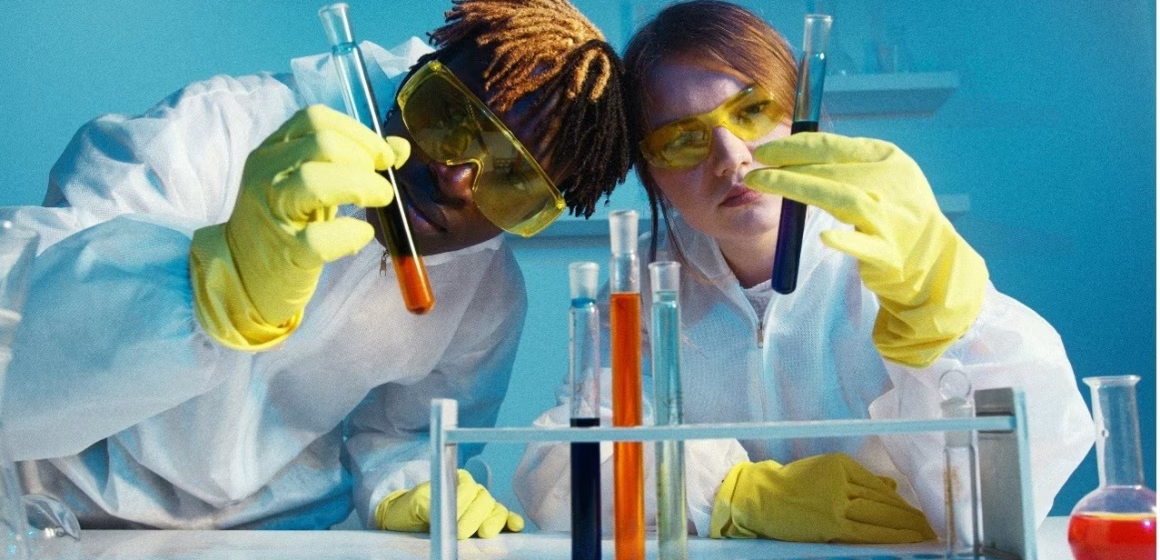Health and medicine have always been central to human progress. From ancient herbal remedies to today’s sophisticated genomic therapies, the journey of medicine reflects our constant pursuit of longer, healthier, and more fulfilling lives. In the 21st century, the healthcare landscape is undergoing a revolution—driven by technology, data, and a renewed focus on prevention and holistic well-being.
The modern approach to health is no longer just about treating diseases but preventing them, understanding their causes, and improving overall quality of life. This article explores how innovation, lifestyle medicine, and patient-centered care are transforming healthcare as we know it.
The Age of Medical Innovation
Medical innovation is accelerating at an unprecedented pace. Advances in artificial intelligence (AI), biotechnology, genomics, and telemedicine are reshaping how diseases are diagnosed, treated, and managed.
AI-powered systems can now detect cancers, heart diseases, and neurological conditions earlier and more accurately than ever before. For example, algorithms can analyze radiological scans or pathology slides with remarkable precision, helping doctors make faster and more reliable decisions. Machine learning models are also being used to predict disease outbreaks, monitor patient recovery, and personalize treatment plans.
Meanwhile, genomic medicine—the study of how our genes influence health—has opened doors to highly individualized therapies. Precision medicine allows doctors to tailor treatments to a person’s genetic profile, reducing side effects and improving outcomes. Conditions like cancer and rare genetic disorders are already benefiting from such breakthroughs, offering new hope where traditional methods once fell short.
In addition, biotechnology continues to push the boundaries of what’s possible. From CRISPR gene editing to regenerative medicine using stem cells, science is entering a new era where curing diseases rather than managing them could become the norm.
The Digital Transformation of Healthcare
The digital era has redefined how healthcare is delivered. Telemedicine—once a niche service—is now a cornerstone of modern healthcare, especially after the COVID-19 pandemic. It allows patients to consult doctors from home, reducing barriers such as distance, cost, and time.
Wearable devices and health apps have also empowered individuals to monitor their well-being in real-time. Smartwatches can track heart rate, oxygen levels, and sleep patterns, while mobile apps help users manage stress, nutrition, and medication. These innovations make healthcare proactive instead of reactive.
Additionally, electronic health records (EHRs) are streamlining patient data management, ensuring that medical histories are easily accessible to healthcare providers across systems. This connectivity improves coordination and reduces medical errors.
However, digital transformation also comes with challenges. Data privacy, cybersecurity, and equitable access remain critical concerns. As technology evolves, the healthcare industry must strike a balance between innovation and ethical responsibility, ensuring that digital health remains inclusive and secure for all.

Preventive Medicine: The Shift Toward Wellness
The future of medicine lies not only in treating illness but in preventing it. Preventive medicine focuses on identifying risk factors early and promoting healthy behaviors that reduce the likelihood of disease.
Chronic diseases—such as heart disease, diabetes, and obesity—are largely preventable through lifestyle changes. Simple actions like maintaining a balanced diet, exercising regularly, and managing stress can drastically reduce health risks. Governments and healthcare organizations are now emphasizing public health campaigns and wellness programs that encourage these habits.
Moreover, advances in diagnostics have made early detection more effective. Routine screenings, genetic testing, and predictive analytics can identify potential health issues long before symptoms appear. This proactive approach not only saves lives but also reduces healthcare costs significantly.
The rise of lifestyle medicine, which integrates nutrition, physical activity, sleep, and mindfulness, reflects a broader cultural shift toward holistic health. Doctors are beginning to prescribe “exercise and diet” as seriously as medication, recognizing that prevention is the most powerful treatment of all.
The Role of Mental Health in Modern Medicine
For too long, mental health was overlooked in the broader healthcare conversation. Today, that is changing. There is growing recognition that mental well-being is inseparable from physical health. Stress, anxiety, and depression can contribute to chronic conditions like hypertension, heart disease, and weakened immunity.
Modern medicine now emphasizes integrative care, combining psychological support with physical treatment. Teletherapy platforms have made mental health services more accessible, especially for younger generations and rural populations. Mindfulness, meditation, and cognitive behavioral therapy (CBT) are becoming mainstream approaches for managing mental health.
Employers are also recognizing the importance of workplace mental health. Programs that promote work-life balance, emotional resilience, and stress reduction are no longer perks—they’re essential strategies for long-term productivity and employee well-being.
The integration of mental health into standard healthcare practices represents one of the most important shifts in medicine’s evolution—one that finally treats the person, not just the symptoms.
Public Health and Global Collaboration
The COVID-19 pandemic was a stark reminder of how interconnected our world is—and how vital public health systems are. It exposed both the strengths and weaknesses of global healthcare infrastructures and emphasized the importance of collaboration, transparency, and preparedness.
Public health agencies are now investing more in early warning systems, vaccine research, and rapid response capabilities. International partnerships between governments, universities, and private companies have accelerated medical innovation and improved crisis response.
The global effort to develop and distribute COVID-19 vaccines demonstrated how collaboration can save millions of lives. Moving forward, similar strategies will be crucial in tackling other global challenges such as antimicrobial resistance, emerging infectious diseases, and health inequities.
In addition, public health initiatives are increasingly focusing on social determinants of health—factors such as education, environment, and income that influence well-being. Addressing these root causes is key to creating healthier societies worldwide.
Sustainability in Medicine
Sustainability has become a core issue in healthcare. Hospitals and pharmaceutical companies are major contributors to waste and carbon emissions, and the healthcare industry is now taking steps to reduce its environmental footprint.
Efforts include energy-efficient hospital designs, waste reduction programs, and sustainable sourcing of medical supplies. Digital records and telehealth also reduce the need for paper and travel, further lowering emissions.
Pharmaceutical innovation is focusing on environmentally friendly production processes, minimizing harmful byproducts and promoting responsible disposal of medical waste. Sustainable healthcare not only benefits the planet but also enhances patient health, as cleaner environments contribute to better public health outcomes.
The Human Side of Medicine
Despite technological advancements, medicine remains deeply human. At its core, healthcare is about compassion, empathy, and trust. Machines can assist diagnosis, but they cannot replace the healing power of human connection.
The best healthcare outcomes arise when science and empathy work hand in hand. Doctors who listen, understand, and communicate effectively help patients feel valued and supported, leading to better recovery and adherence to treatment plans.
Training programs are increasingly emphasizing communication and emotional intelligence in medical education. As healthcare grows more complex, these soft skills are becoming as important as clinical expertise.

Conclusion: Toward a Healthier, Smarter Future
The future of health and medicine is both exciting and demanding. It calls for a delicate balance between innovation and humanity, between technology and ethics, between prevention and cure.
We are entering an era where healthcare is more personalized, accessible, and connected than ever before. Artificial intelligence will assist doctors, gene therapy will cure diseases once thought incurable, and preventive care will empower people to take charge of their well-being.
But as we embrace this future, we must remember that true health is not just the absence of illness—it is the harmony of body, mind, and spirit. Medicine must continue to evolve not only scientifically but also compassionately, ensuring that every advance serves the greater goal of human flourishing.
In this new age of medicine, the most powerful prescription may not come from a lab—but from how we live, care, and connect with one another.


Leave a Reply